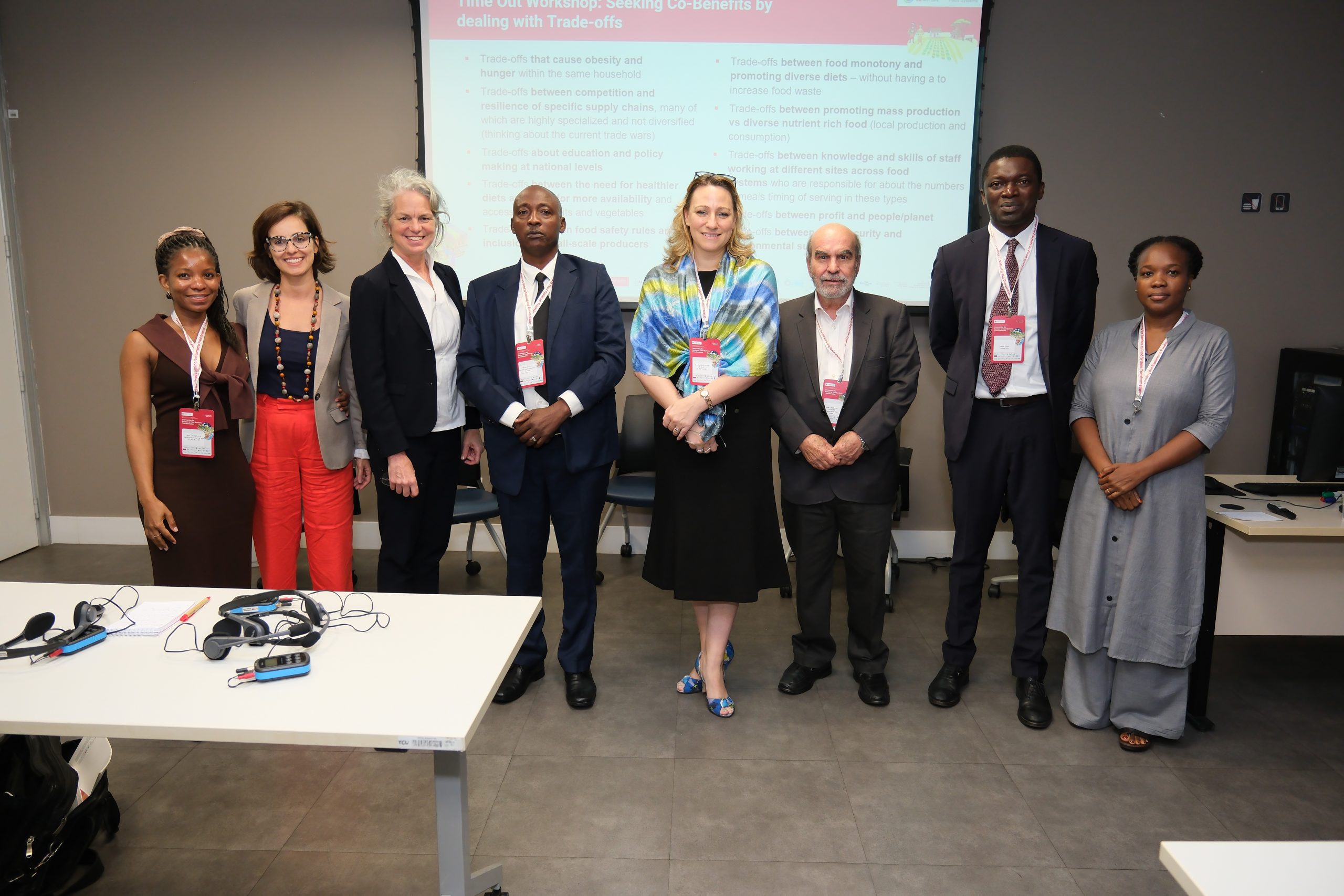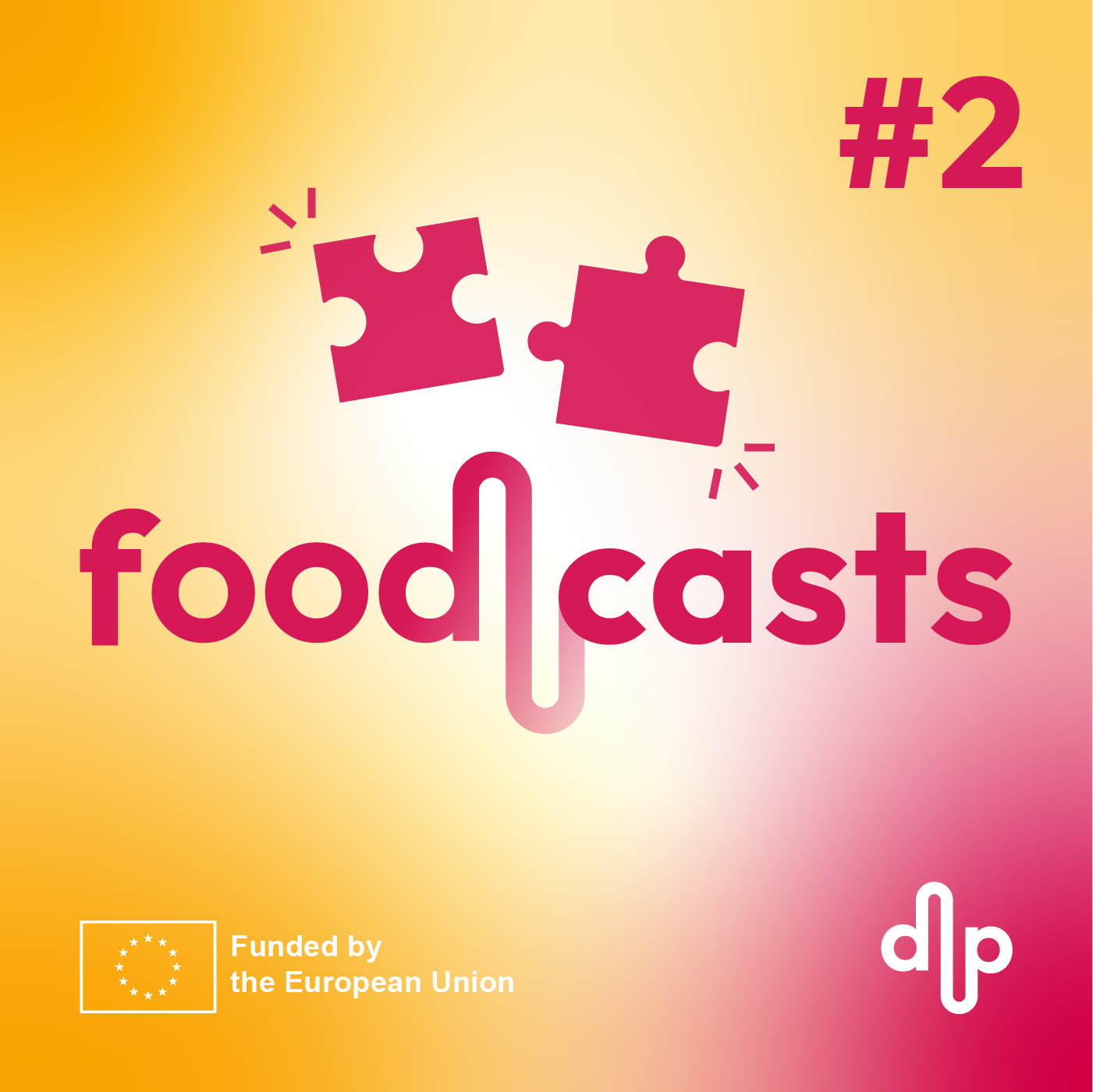SFS Partnership Events & Media | 06 Mar 2023
Funders met face-to-face in Brussels to co-create the future SFS Partnership
On February 8th, around 100 attendees representing ministries, industry, education, funding agencies and various members of the research community (half of them in person and the other half online) had the opportunity to listen to the latest news on the development of the Sustainable Food Systems Partnership and the role of FOODPathS in this process.
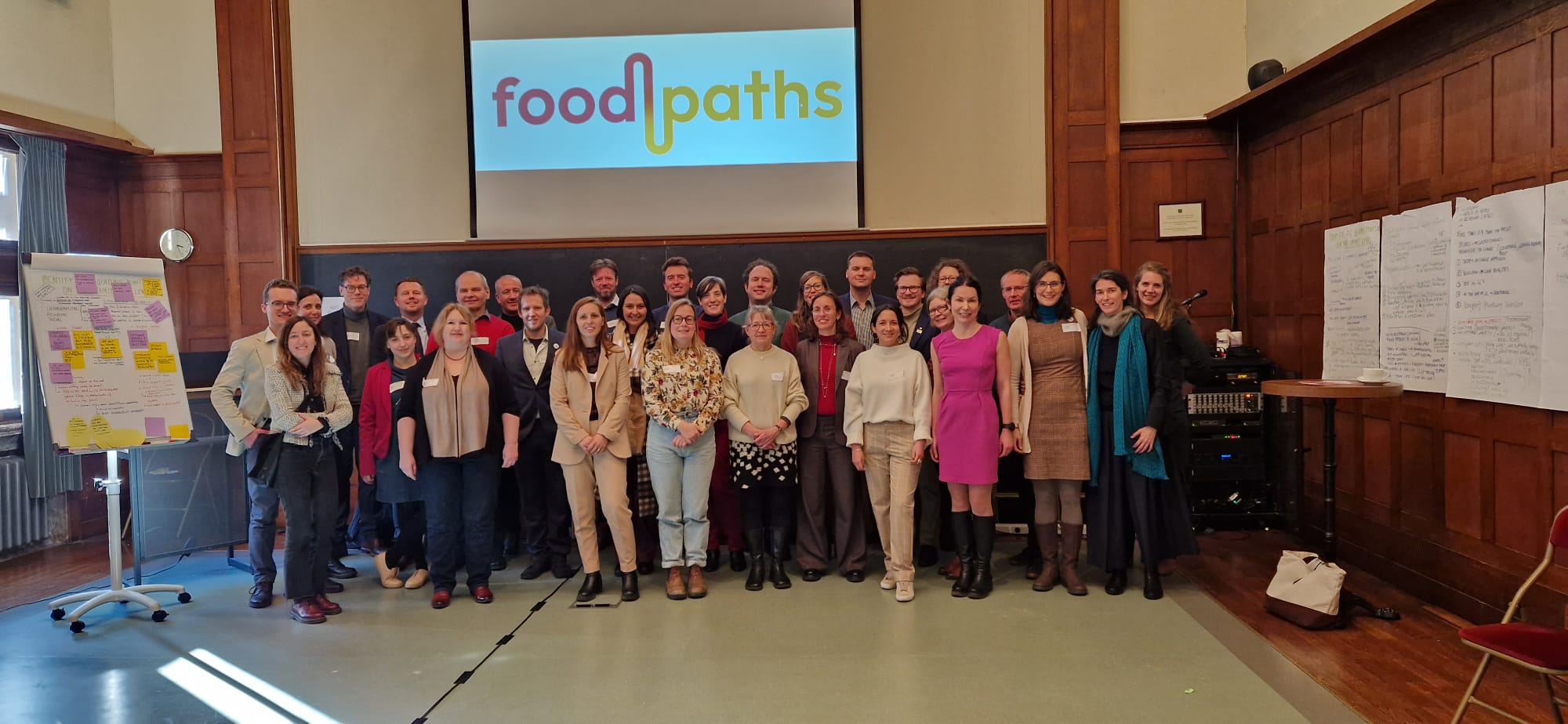
On February 8th, the second FOODPathS Funders Forum brought together around 100 passionate individuals, half participating in person and the other half online, to shape and co-create the funding strategies of the future Sustainable Food Systems Partnership. If you couldn’t participate in the Forum, don’t worry! You can find the presentations and the recording of the AM session at the end of the article.
AM session
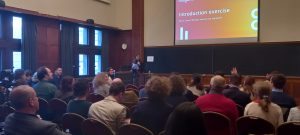
In the morning, the FOODPathS team presented some of the outcomes of the first Funders forum, such as the importance of co-creation and stakeholder involvement, combination of basic and applied science, the need to consider various element for impact (e.g. also social, cultural, educational etc.) and the need to support the young generations, and went deeper into what the project is doing regarding the funding of the future Partnership.
Daniela Lüth , from EC DG RTD, provided an insightful presentation on how the SFS Partnership relates to the FOODPathS CSA project, the expected timeline and the distinction between internal and external calls.
Gilles Ferron, from ANR, explained what the Partnership Consortium building process entails and the expected next steps. He also introduced the core group of the Consortium and provided insights into the results of the survey that was conducted in cooperation with FOODPathS, including geographical coverage of interested partners. Finally, he shared an overview of the preliminary work package structure and next steps.
Frank Hensgen, from Juelich, inspired the audience with 4 examples of food systems funding and research approaches: FOOdIVERSE (diversifying sustainable and organic food systems), SmartDairy (assessing challenges, innovations and solutions of climate smart dairy), AlgaeBrew (microalgae to transform brewery waste into feed and fertiliser) and SYSTEMIC (Knowledge Hub on Food and Nutrition Security).
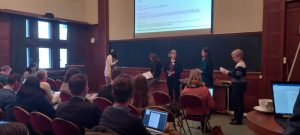
After the three presentations, Nikola Hassan from Juelich led the discussion with project partners (Terhi Junkkari from SeAMK/ERIAFF, Giulia Lombardi from Philea, Ivana Trkulja from AU-ICROFS/CORE Organic, and Jasmina van Driel from ZonMw/JPI HDHL) who shared their experiences in food systems approaches, highlighting specific points of attention such as the importance of inclusion of new and innovative funders from regions and foundations, which can act as accelerators of transformation towards sustainable food systems.
The overall attitude toward the partnership is very positive among regions and foundations, but specific questions of eligibility need clarification. Ivana and Jasmina emphasized that the partnerships constitute a major shift compared to earlier funding instruments, also for public funding bodies, due to their larger size and ambition.
The discussion was also informed by the outcomes of interviews conducted over the past few months with funders, ministries, and regional bodies.
PM session
As the participants returned fr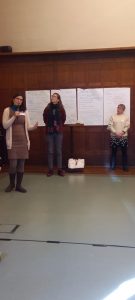 om lunch, they were eager to delve deeper into food system funding approaches. The interactive afternoon session, exclusively for live participants, was initiated by Susanne Hansen, Ivana Trkulja, and Merete Studnitz (AU-DCA/ICROFS) who led a discussion on a food system conceptual model. This model aims to unpack the food system approach by 1) exploring the impacts of change across the full system, 2) capturing potential trade-offs between domains, and 3) recognising the complexities and dynamism of the food system.
om lunch, they were eager to delve deeper into food system funding approaches. The interactive afternoon session, exclusively for live participants, was initiated by Susanne Hansen, Ivana Trkulja, and Merete Studnitz (AU-DCA/ICROFS) who led a discussion on a food system conceptual model. This model aims to unpack the food system approach by 1) exploring the impacts of change across the full system, 2) capturing potential trade-offs between domains, and 3) recognising the complexities and dynamism of the food system.
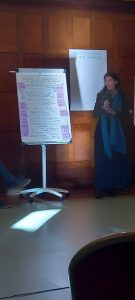
Following the introductions of the model, the participants were challenged to consider the three levels of implementation – call text, proposal evaluation and impact level – that formed the basis of the interactive session. The participants were split into 3 groups and encouraged to think outside their comfort zones to come up with ideas for funding strategies and mechanisms that could enable real food systems-oriented, transdisciplinary research.
The three groups generated a wealth of innovative and thought-provoking ideas, which will be shared very soon in the upcoming workshop report.
Access to the presentations and the recording of the event by clicking on the button below.
Do you want us to let you know when this information and other important developments are publicly available?
Register below and we will make sure you are always up-to-date!
And don’t forget to follow us on ![]() Twitter and on the Sustainable Food System Network (SFSN).
Twitter and on the Sustainable Food System Network (SFSN).
